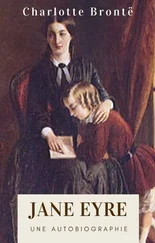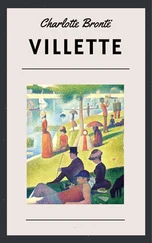“All right,” Mr. Starling was saying, “so Darwin describes evolution in terms of a ‘tree of life,’ starting with a single point from which rise limbs, branches”—with his arms he pantomimed a tree rising and widening—“offshoots of infinite variety, but what is that point where it all starts? What does Darwin say this tree has ascended from? Where does he say evolution begins?”
He surveyed his audience, and a dozen hands shot up. “Yes,” he said, pointing to a plump blond girl in the topmost row, not all that far from one of the molten wings of Icarus.
“He said it began with a single cell, a single-cell organism,” said the girl. “Somebody asked him where the single cell was located, and he said, ‘Oh, I don’t know, probably in a warm pond somewhere.’”
An undercurrent of laughter ran through the amphitheater. Everybody looked to Mr. Starling to see how he would take it.
He smiled in a shrewd sort of way, paused, then said, “You happen to be exactly right. In fact, he suggested there might have been a whole school of single-cell organisms in that warm pond. But that leaves us with the question of where the single-cell organisms came from and, as far as that goes, the warm pond—but let’s forget about the pond for the time being. Where did Darwin say the single cell or cells came from?”
He crossed his arms and cocked his head to one side, a challenging pose he often struck. “Okay, my little geniuses,” the pose said, “what are you going to do with that one?”
One of the amphitheater’s downlighters happened to hit him dramatically, theatrically…just so…and he held the pose during the silence that ensued. In Charlotte’s estimation, the vision was…sublime. Victor Ransome Starling’s thick brown hair, which he combed straight back, was definitely still brown despite a rising tide of gray. The current fashion among male professors at Dupont was scrupulously improper: cheap-looking shirts, open at the throat, needless to say, and cotton pants with no creases—jeans, khakis, corduroys—to distinguish themselves from the mob, which is to say, the middle class; but Victor Ransome Starling always bucked the tide with the sort of outfit he was wearing right now, a brown-and-white houndstooth suit that looked great on his slender frame, a light blue shirt, a black knit tie, and a pair of ginger-brown suede shoes. To Charlotte he was elegance itself amid a motley crew.
Yes, Mr. Starling was sublime, to look at and to listen to, and he had posed a question. Swept away, Charlotte raised her hand and was immediately frightened by her own audacity—a freshman in an advanced class taught by a Nobel Prize winner in a daunting amphitheater overflowing with upperclassmen.
The vision below looked up at her, gestured, and said, “Yes?”
Charlotte’s heart began racing, and she became acutely conscious of the sound of her own voice. “Darwin said—he said he didn’t know where the original cells came from, and he wasn’t going to guess?” Even as the words left her lips, she was aware that she was reverting, in her nervousness, to the way she spoke before she arrived at Dupont. She had broken guess into two syllables and uttered it on a rising note, as if she were asking a question rather than making a statement. But she plowed on. “He said the origin of life itself was a hopeless in quiry?” Inquiry rose, too! And she had come down on the in like a farm boy driving in a stake with an ax head. “And it would be way, way in the future before somebody figured that out, if they ever did?”—which not only rose but also came out dee-ud. “And I think he said—in The Origin of Species?—I think he said that in the beginning it was the Creator?—with a capital C? It was the Creator, and he breathed life ‘into a few or into one’—a few single-cell organisms or one single-cell organism, I guess.” Geh-ess—in spite of herself.
“Right,” said Mr. Starling, looking up at her from the stage. Then he turned away to address the class as a whole. “Now you’ll notice—” He stopped abruptly and looked up again in Charlotte’s direction: “Very good. Thank you.” Then he turned away again and continued. “You’ll notice that Darwin, who probably did more than any other single person to extinguish religious faith among educated people, doesn’t present himself as an atheist. He bows to ‘the Creator.’ He always professed to be a religious person. There’s one school of thought that says he was only throwing a sop to the conventional beliefs of his day, since he knew The Origin of Species might be attacked as blasphemous. But I suspect it was something else. He probably couldn’t conceive of being an atheist. In his day, not even the most daring, most rationalistic and materialistic philosophers, not even David Hume, professed to be atheists. It’s not until the end of the nineteenth century that we come upon the first atheist of any prominence: Nietzsche. I suspect Darwin figured that since nobody had the foggiest idea as to what created life in the first place, and might never know, why not just say it was created by the Creator and let it go at that?”
He looked up in Charlotte’s direction again and gestured. “You’ve made a very fine and very important distinction.” Then his eyes panned over the entire class. “The origin of the species, which is to say, evolution, and the origin of life itself, of the impulse to live, are two different things.”
The student on Charlotte’s right, a cheery brunette with pale but striking features whom she knew only as a junior named Jill, whispered, “Hey! Charlotte!” and opened her eyes wide and pulled a face of mock astonishment. Then she mouthed the words “Not bad!” and smiled.
A flood of joy, so intense it seemed tangible in her nerve endings, ran through Charlotte’s entire body. She was giddy. She barely took in anything anybody said in the last few minutes of the class.
One thing she did remember was something Mr. Starling said about “the conscious little rock”:
“If anyone should ask me why we’re spending so much time on Darwin,” he was saying at one point, “I would consider that a perfectly logical question. Darwin was not a neuroscientist. His knowledge of the human brain, if any, was primitive. He knew nothing about genes, even though they were discovered by a contemporary of his, an Austrian monk named Gregor Johann Mendel—whose work strengthens the case for evolution tremendously. But Darwin did something more fundamental. He obliterated the cardinal distinction between man and the beasts of the fields and the wilds. It had always been a truism that man is a rational being and animals live by ‘instinct.’ But what is instinct? It’s what we now know to be the genetic code an animal is born with. In the second half of the last century, neuroscientists began to pursue the question, ‘If man is an animal, to what extent does his genetic code, unbeknownst to him, control his life?’ Enormously, according to Edward O. Wilson, a man some speak of as Darwin the Second. We will get to Wilson’s work soon. But there is a big difference between ‘enormously’ and ‘entirely.’ ‘Enormously’ leaves some wiggle room for your free will to steer your genetically coded ‘instincts’ in any direction you want—if…there is such a thing as ‘you.’ I say ‘if,’ because the new generation of neuroscientists—and I enjoy staying in communication with them—believe Wilson is a very cautious man. They laugh at the notion of free will. They yawn at your belief—my belief—that each of us has a capital-letter I, as in ‘I believe,’ a ‘self,’ inside our head that makes ‘you,’ makes ‘me,’ distinct from every other member of the species Homo sapiens, no matter how many ways we might be like them. The new generation are absolutists. They—I’ll just tell you what one very interesting young neuroscientist e-mailed me last week. She said, ‘Let’s say you pick up a rock and you throw it. And in midflight you give that rock consciousness and a rational mind. That little rock will think it has free will and will give you a highly rational account of why it has decided to take the route it’s taking.’ So later on we will get to ‘the conscious little rock,’ and you will be able to decide for yourself: ‘Am I really…merely…a conscious little rock?’ The answer, incidentally, has implications of incalculable importance for the Homo sapiens’ conception of itself and for the history of the twenty-first century. We may have to change the name of our species to Homo Lapis Deiciecta Conscia—Man, the Conscious Thrown Stone—or, to make it simpler, as my correspondent did, ‘Man, the Conscious Little Rock.’”
Читать дальше










